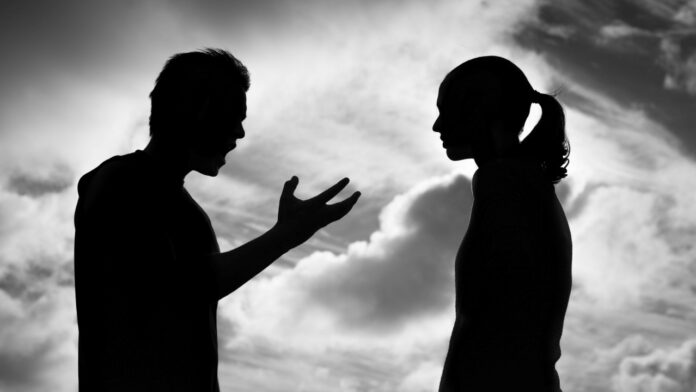In the bustling streets of Bengaluru, a city synonymous with India’s tech boom and vibrant culture, a chilling reminder of love’s perilous edge unfolded on Monday. Twenty-six-year-old Vanajakshi, a young woman navigating the aftermath of a fractured relationship, was en route from a temple visit when her live-in partner, Vithal, a cab driver plagued by alcohol addiction, intercepted her vehicle at a traffic signal. What followed was a scene of unimaginable horror: Vithal doused the car with petrol, pursued Vanajakshi as she fled in terror, and set her ablaze. She succumbed to severe burns in the hospital, while Vithal, himself injured, was arrested within 24 hours. This incident, rooted in domestic disputes and separation, has jolted Karnataka’s capital, spotlighting the lethal intersection of heartbreak and violence. As police delve into the couple’s history of conflicts, the tragedy echoes a broader epidemic: when romantic rejection spirals into criminality, claiming lives and shattering communities.
This Bengaluru case is no anomaly in India, where failed relationships increasingly make headlines for their tragic, often fatal, conclusions. From acid attacks to stabbings, the narrative of the “jilted lover” has become a recurring motif in crime reports, particularly in states like Karnataka, where domestic violence cases linked to breakups have surged in recent years. According to recent data, such incidents underscore a societal failure to address emotional turmoil before it erupts into brutality. In this feature, we explore the multifaceted dimensions of heartbreak-turned-hostility, drawing from recent cases across India, psychological insights, legal frameworks, and cultural portrayals—all rooted in the Indian context.
From heartbreak to headlines: When love turns criminal
The transformation of love into lethal rage is a storyline that dominates Indian news cycles, with jilted lovers resorting to extreme measures. In Karnataka alone, 2024-2025 has seen a spike in such crimes. Beyond the Bengaluru petrol attack, consider the Mysuru stabbing where a jilted lover fatally knifed a woman in broad daylight, arrested swiftly by local police. Similarly, in Udaipur—though outside Karnataka but reflective of national trends—a 27-year-old man murdered his ex-girlfriend in a hotel after learning of her engagement to another. These acts aren’t isolated; they form part of a pattern where rejection fuels vengeance.
Nationwide, the tally is alarming. In Gujarat, a student was stabbed to death outside college by a spurned suitor, with a friend injured in the assault. Jaipur reported a similar case where a jilted lover’s fury led to murder. In Delhi, a wave of “crimes of passion” has been dubbed an epidemic, with unrequited love triggering brutal killings. Kerala documented 30 attacks in six years due to unrequited affection, resulting in 20 deaths. These stories, often splashed across front pages, highlight a cultural undercurrent where possessiveness masquerades as love, escalating to violence when thwarted.
Experts attribute this to patriarchal norms that view women as possessions. In a 2022 analysis, crimes stemming from romantic rejection were framed as acts of ownership and revenge, with victims objectified and destroyed if unattainable. In Karnataka, police records show domestic disputes like Vithal’s often stem from alcohol and unresolved conflicts, amplifying the risk. As India grapples with urbanization and shifting relationship dynamics, these headlines serve as grim warnings: heartbreak, unchecked, can turn fatal.
Ghosted and dangerous: The rise of digital rejection rage
In the digital age, rejection has evolved beyond face-to-face confrontations, manifesting as “ghosting”—abruptly cutting off communication without explanation. This phenomenon, prevalent on dating apps and social media, is fueling a new wave of rage in India. Urban women, particularly in cities like Bengaluru and Mumbai, report harassment following digital snubs, leading to emotional distress and, in extreme cases, crimes.
A study on dating-app harassment among educated Indian women reveals how rejection triggers aggressive responses, from cyberstalking to threats. Ghosting leaves victims in ambiguity, amplifying pain and confusion. In Karnataka, cases of online rejection escalating offline are rising; for instance, Bengaluru’s tech-savvy youth have reported stalking after app-based breakups, mirroring national trends.
India’s cybercrime landscape exacerbates this. While “digital arrest” scams dominate headlines—where fraudsters pose as authorities to extort money—rejection rage manifests in targeted harassment. A 2024 report notes increased digital crimes overshadowing traditional ones, with emotional rejection as a trigger.
Psychologists warn that digital rejection intensifies feelings of abandonment, pushing some to criminal acts. In India, where arranged marriages coexist with app-driven dating, this clash amplifies rage. Initiatives like cyber helplines in Karnataka aim to curb this, but the rise underscores a need for digital literacy to prevent rejection from turning dangerous.
Love on Trial: Legal battles sparked by failed relationships
When romance sours, India’s courts become battlegrounds. Domestic violence cases from breakups often invoke the Protection of Women from Domestic Violence Act, 2005 (DV Act), leading to protracted legal fights. In Karnataka, the Bengaluru incident has prompted calls for stricter enforcement, with Vithal facing charges under IPC sections for murder and assault.
Nationally, failed relationships fuel lawsuits over harassment, dowry demands, and custody. A Lucknow case saw an inspector booked for a minor’s murder in a jilted love scenario. In Delhi, a jilted lover’s attack on a woman and her mother escalated to court. These trials expose systemic delays; victims endure years of hearings, reliving trauma.
Legal experts note that while the DV Act provides relief, implementation lags. In a 2024 High Court ruling, digital crimes linked to relationships were prioritized, but convictions remain low. Love on trial often reveals power imbalances, with women bearing the brunt. As cases mount, reforms like faster tracks for relationship-based violence are urged to deliver justice swiftly.
The science of heartbreak: What really happens to the jilted brain
Heartbreak isn’t just emotional—it’s physiological. Indian studies reveal breakups trigger intense psychological distress, akin to physical pain. A 2025 study on young adults found breakups significantly impact well-being, with gender differences: women report higher distress, men more anger. In Karnataka’s urban settings, where relationships are fluid, this manifests as anxiety and depression.
Neurologically, rejection activates brain regions linked to pain and addiction withdrawal. Research from Monk Prayogshala shows sleep loss, appetite changes, and long-term health effects. A PMC study highlights rumination—obsessive thinking—exacerbating the impact. In India, cultural stigma around mental health delays recovery; post-breakup, individuals face increased suicide risk.
Coping involves grief processing, leading to post-traumatic growth. Experts like Megha Singh advocate therapy to mitigate rage, preventing crimes like Bengaluru’s.
From revenge to redemption: Stories of jilted lovers who transformed their pain
Amid the darkness, tales of resilience emerge. In India, some jilted lovers channel pain into purpose. The Love Commandos, founded in 2010, have rescued thousands of couples from familial opposition, turning founders’ own heartbreaks into advocacy. One volunteer’s story: rejected by family, he now aids inter-caste lovers, finding redemption in service.
In literature, Padma Prasad’s short story “Manju’s Lover” depicts a jilted novelist’s path to healing. Real-life examples include survivors who start NGOs; a Delhi woman, after a violent breakup, founded a support group for domestic violence victims.
Psychological studies affirm this: breakups can foster growth, with individuals emerging stronger. In Karnataka, counseling centers report success stories where therapy transforms rage into self-improvement.
Love and the Law: Do restraining orders really protect the heartbroken?
India’s DV Act empowers courts to issue protection orders, akin to restraining orders, barring abusers from contact. In domestic cases like Bengaluru’s, these could prevent escalation. Yet, enforcement falters; violators often evade penalties.
A 2025 blog highlights key laws, but gaps persist—fines for non-compliance are meager. In Karnataka, victims report delays in order issuance, rendering them ineffective. National data shows low conviction rates, questioning their protective efficacy.
Reforms, like digital tracking of orders, are proposed to safeguard the heartbroken.
Historical heartbreak: Famous jilted lovers who shaped history
India’s history brims with tales of spurned love influencing destinies. Heer-Ranjha, Punjab’s legendary lovers, defied society, their rejection inspiring folk epics. Shah Jahan’s grief over Mumtaz Mahal’s death birthed the Taj Mahal, a monument to eternal love amid heartbreak.
Radha-Krishna’s divine bond, marked by separation, symbolizes unrequited devotion. These stories, unlike modern crimes, shaped cultural narratives of resilience.
Revenge or Red Flag? How media glorifies the jilted lover trope
Indian media often romanticizes jilted lovers, framing violence as “passion.” A 2012 Times report called it a “new crime epidemic,” yet headlines sympathize with perpetrators. Coverage of Dalit rape victims blames women, perpetuating bias.
In queer suicide reporting, media constructs narratives that glorify suffering. Critics argue this normalizes revenge, urging ethical shifts to highlight red flags.
Jilted in the workplace: When office romances go wrong
Office affairs in India often lead to harassment when they fail. The POSH Act 2013 aims to protect, but informal sectors lag. In Gujarat, complaints rose 59% in 2015, many from soured romances.
A 2020 HRW report notes poor enforcement for marginalized workers. In Bengaluru’s IT hubs, failed relationships trigger complaints, with companies failing to settle cases. Reforms demand better ICCs to address this.
Valentine’s Day gone wrong: The annual spike in breakups and backlash
Valentine’s Day in India sees breakup surges, with requests for divorce lawyers up 40% post-holiday. Facebook data shows peaks before Christmas and after February 14.
Anti-Valentine’s Week, from Slap Day to Breakup Day, offers catharsis but highlights violence risks. NCRB data ties couple violence to such periods. Despite right-wing opposition waning, the day amplifies heartbreak’s backlash.
In conclusion, from Bengaluru’s streets to national courts, India’s jilted lovers narrative demands intervention. Awareness, mental health support, and robust laws can transform pain into healing, preventing more tragedies. As Vanajakshi’s story fades from headlines, let it ignite change—ensuring love doesn’t burn.



